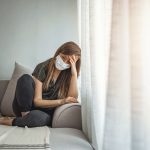Stunning admission: Mandatory quarantines too harsh for Ebola, “justified” for COVID, according to Dr. Fauci
 (NaturalHealth365) Dr. Anthony Fauci, does “moving the goalposts” mean anything to you? While it’s understandable that policies change as our understanding of an ongoing public health crisis evolves, the jump from “two weeks to slow the spread” to massive COVID vaccine rollouts, mandatory quarantines, and masks until 2022 seems egregious to many citizens and concerned doctors.
(NaturalHealth365) Dr. Anthony Fauci, does “moving the goalposts” mean anything to you? While it’s understandable that policies change as our understanding of an ongoing public health crisis evolves, the jump from “two weeks to slow the spread” to massive COVID vaccine rollouts, mandatory quarantines, and masks until 2022 seems egregious to many citizens and concerned doctors.
In fact, questions about the validity of mandatory quarantine for COVID seems even more questionable in light of a stunning video of Dr. Fauci himself questioning mandatory quarantines for healthcare workers involved in the extremely deadly West African Ebola virus outbreak that occurred just several years ago.
Mandatory quarantines for healthcare workers fighting deadly Ebola virus deemed ‘questionable and unnecessary’ by Dr. Fauci
In case you don’t remember, there was an Ebola virus outbreak in West Africa from 2014 to 2016. The Ebola virus can cause a potentially fatal disease with a reported death rate of 25% to up to 90%. Even the low end of that spectrum is exponentially higher than the current estimated death rates of COVID-19, which according to a recent analysis out of Johns Hopkins, is less than 2% in the United States.
Nevertheless, in a 2014 interview with NBC News, Dr. Fauci urged state officials to avoid mandatory quarantines for healthcare workers returning to the U.S. after helping with the Ebola crisis in West Africa. “You don’t have to put [returning healthcare workers] in a confined place,” he says, after stating that socially isolating people who aren’t sick could lead to “unintended consequences.”
In other words:
In 2014, Dr. Fauci suggested that the use of mandatory quarantines for healthcare workers returning from the front line of an extremely deadly epidemic was too harsh. Fast-forward to 2021, and Fauci and officials are now endorsing strict mandatory quarantines – even for people who aren’t sick – for a virus that is far less deadly, according to current evidence.
Fauci’s inconsistency is concerning. Even the World Health Organization has long held the position that movement restrictions and social distancing can “have a profound negative impact on individuals, communities, and societies by bringing social and economic life to a near stop.” But this just doesn’t seem to stop the current efforts to lock people down.
Canada following suit by restricting mobility, enforcing mandatory quarantines, and relocating citizens to “government-authorized” hotels
In neighboring news, Canadian Prime Minister Justin Trudeau recently announced new travel restrictions for all travelers who are allowed to enter the country. People eligible to enter Canada must quarantine for 14 days, even if they have no symptoms of COVID-19. Mandatory quarantines are required even for individuals who have been vaccinated for, tested negative for, and/or recovered from COVID-19.
According to the Government of Canada’s website, all travelers flying into Canada who do not have symptoms must also book a “mandatory 3-night prepaid booking at a government-authorized hotel at your own cost.” The government is threatening fines of up to $750,000 and imprisonment of up to 6 months for failing to comply with these restrictions. (The punishment increases to $1 million or 3 years in prison if they deem that non-compliance leads to the “death or serious bodily harm to another person.”)
As for the United States, all air passengers are currently required to produce a negative COVID-19 test result or document a recent recovery from COVID-19 before boarding any flight to the U.S. Many suspect that these requirements will become even stricter as the COVID vaccine rollout continues and tech companies race to create the highly controversial digital “vaccine passports.”
Sources for this article include:



